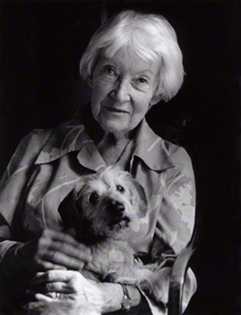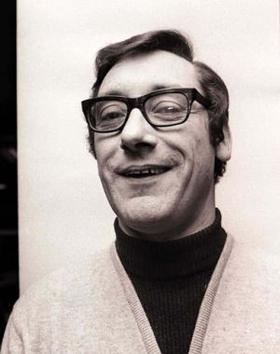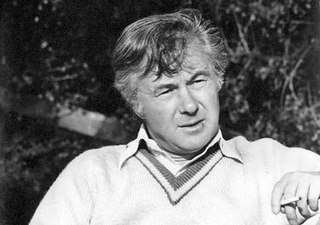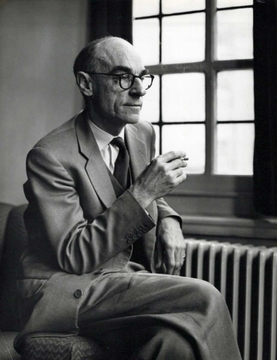
Denholm Mitchell Elliott was an English actor. He appeared in numerous productions on stage and screen, receiving BAFTA awards for Best Actor in a Supporting Role for Trading Places (1983), A Private Function (1984) and Defence of the Realm (1986), and a nomination for the Academy Award for Best Supporting Actor for his portrayal of Mr. Emerson in A Room with a View (1985). He is also known for his performances in Alfie (1966), A Doll's House (1973), A Bridge Too Far (1977), Maurice (1987), September (1987), and Noises Off (1992). He portrayed Marcus Brody in Raiders of the Lost Ark (1981) and Indiana Jones and the Last Crusade (1989).

Elizabeth Dilys Powell was a British film critic and travel writer who contributed to The Sunday Times for more than 50 years. Powell was known for her receptiveness to cultural change in the cinema and coined many classic phrases about films and actors. She was a founding member of the Independent Television Authority (ITA), which launched commercial television in the UK. She was also the second female president of the Classical Association. Powell wrote several books on films and her travels in Greece.

John Richard Schlesinger was an English film and stage director, and actor. He emerged in the early 1960s as a leading light of the British New Wave, before embarking on a successful career in Hollywood, often directing films dealing frankly in provocative subject matter, combined with his status as one of the rare openly gay directors working in mainstream films.
This article chronicles the history of British film certificates.

Alan Frederick Plater was an English playwright and screenwriter, who worked extensively in British television from the 1960s to the 2000s. He is best known for the sitcom Oh No It's Selwyn Froggitt and the comedy drama serials The Beiderbecke Trilogy.

Jack Morris Rosenthal was an English playwright. He wrote 129 early episodes of the ITV soap opera Coronation Street and over 150 screenplays, including original television plays, feature films, and adaptations.

Edward George Sherrin was an English broadcaster, author and stage director. He qualified as a barrister and then worked in independent television before joining the BBC. He appeared in a variety of radio and television satirical shows and theatre shows, some of which he also directed and produced.

Ronald Neame CBE, BSC was an English film producer, director, cinematographer, and screenwriter. Beginning his career as a cinematographer, for his work on the British war film One of Our Aircraft Is Missing (1943) he received an Academy Award nomination for Best Special Effects. During a partnership with director David Lean, he produced Brief Encounter (1945), Great Expectations (1946), and Oliver Twist (1948), receiving two Academy Award nominations for writing.

The Irish Film Classification Office (IFCO) is the organisation responsible for films, television programmes, and some video game classification and censorship within Ireland. Where restrictions are placed by the IFCO, they are legally binding.

Bryan Forbes CBE was an English film director, screenwriter, film producer, actor and novelist described as a "Renaissance man" and "one of the most important figures in the British film industry".
James Alan Ferman was an American-British television and theatre director. He was the Secretary of the British Board of Film Classification from 1975 to 1999.

John Trevelyan, CBE was Secretary of the Board of the British Board of Film Censors from 1958 to 1971.
Robin St. Clair Rimington Hardy was an English author and film director. His most famous directorial work is The Wicker Man, and his last project was a film adaptation of his novel Cowboys for Christ, which was retitled The Wicker Tree.

Love on the Dole is a 1941 British drama film starring Deborah Kerr and Clifford Evans. It was adapted from the novel of the same name by Walter Greenwood. It was the first English-made feature film to show English police wielding batons against a crowd.
In the United Kingdom, pornography is regulated by a variety of laws, regulations, judicial processes and voluntary schemes. Pornographic material generally has to be assessed by regulators or courts to determine its legality. British censorship laws with regard to pornography have often been some of the most restrictive in Western Europe.

The British Board of Film Classification (BBFC) is a non-governmental organisation founded by the British film industry in 1912 and responsible for the national classification and censorship of films exhibited at cinemas and video works released on physical media within the United Kingdom. It has a statutory requirement to classify all video works released on VHS, DVD, Blu-ray, and, to a lesser extent, some video games under the Video Recordings Act 1984. The BBFC was also the designated regulator for the UK age-verification scheme, which was abandoned before being implemented.

The Dark Eyes of London is a 1939 British horror film produced by John Argyle and directed by Walter Summers, and starring Béla Lugosi, Hugh Williams, and Greta Gynt. The film is an adaptation of the 1924 novel of the same name by Edgar Wallace. The film is about a scientist named Dr. Orloff who commits a series of murders for insurance money, while periodically disguising himself as the blind manager of a charity to further his scheme.

Film censorship in the United Kingdom began with early cinema exhibition becoming subject to the Disorderly Houses Act 1751. The Cinematograph Act 1909 was primarily concerned with introducing annual licensing of premises where films were shown, particularly because of the fire risk of nitrate film. After the Act began to be used by local authorities to control what was shown, the film industry responded by establishing a British Board of Film Censors (BBFC) in 1912, funded by an Incorporated Association of Kinematograph Manufacturers levy.

Agnes Mary Field was an English film producer and director, particularly associated with documentary, educational, and children's films.

Paint Drying is a 2023 British experimental protest film that was produced, directed and shot by Charlie Shackleton. He created the film in 2016 to protest against film censorship in the United Kingdom and the sometimes-prohibitive cost to independent filmmakers which the British Board of Film Classification's (BBFC) classification requirement imposes. The film consists of 607 minutes of a static view of white paint drying on a brick wall. Shackleton made the film to force the BBFC to watch all ten hours to give the film an age rating classification. He initially shot 14 hours' worth of footage of paint drying in 4K resolution and opened a Kickstarter campaign to pay the BBFC's per-minute rate for a film as long as possible. It raised £5,936 from 686 backers. After reviewing the film, the BBFC rated it 'U' for 'Universal', indicating "no material likely to offend or harm". Paint Drying had its first public screening at the Queensland Art Gallery and Gallery of Modern Art in Brisbane, Australia, between 10–29 November 2023 as part of the Cinema Obstructed film exhibition—for which Shackleton was co-curator.
















